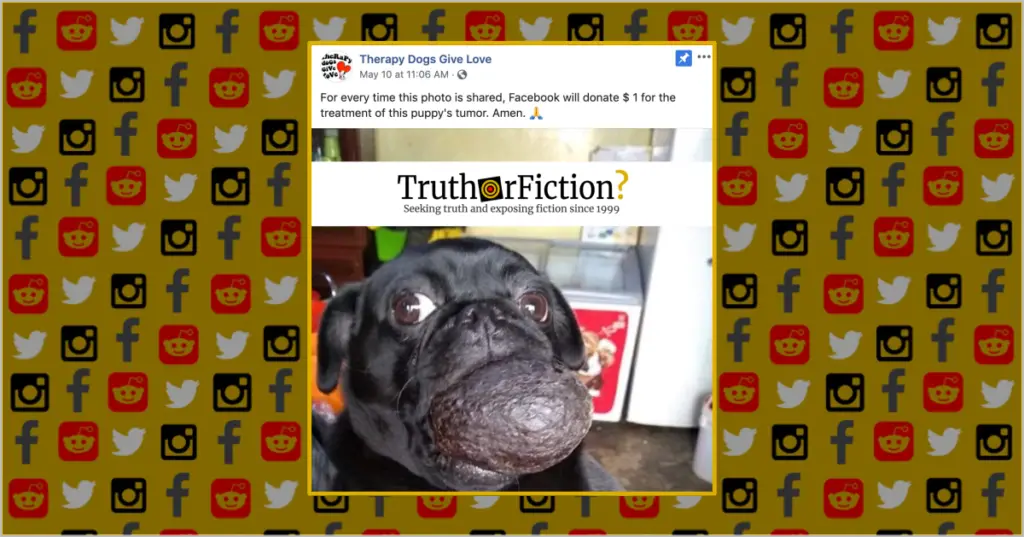On May 10 2019, the Facebook page “Therapy Dogs Give Love” shared the following image and plea (archived here), claiming Facebook was donating $1 for every share of an image of a puppy with a “tumor”:
Alongside an image of a black dog with an avocado in its mouth, the page wrote:
For every time this photo is shared, Facebook will donate $ 1 for the treatment of this puppy’s tumor. Amen. ????
In a May 12 2019 comment by the “Therapy Dogs Give Love” page, the administrator admitted the ruse:
Yes its an avocado folks!
However, the bulk of visible comments didn’t seem to notice the comment or the nature of the picture:
Prayers for this sweet soul. ????????????Shared
Praying for this sweet pup sharing
OMGosh! How does eat? Facebook, just pay the whole bill. You can afford it.
Although page owners commented several days after it was posted to admit that the image did not show an ailing puppy, that message was buried in the many comments and not prominently displayed on the original post. Because of this, the page was able to continue racking up and benefiting from likes, shares, and comments as the dishonest post made its way around Facebook.
As many commenters noted, the post’s intent appeared to be “engagement bait,” luring users to interact with the post and amplify the “Therapy Dogs Give Love” page’s profile on Facebook via a popular share.
In some cases, engagement bait is presented as it is in the manner above — simply by using Facebook’s structure in a dishonest way to boost a page’s statistics. In that format, occasionally a pointless action is requested from users in order to create the artificial impression of an interested user base. Sometimes the page then undergoes a transformation, changing its name and description after a certain number of users join the group or page.
But in other applications, engagement bait has more sinister connotations. Pages and entities of dubious intent entice people to engage with a page to rapidly build an audience, often offering phony enticements or giveaways. In the case of the pug-with-an-avocado, the standard 10 or 25 cents “donation” plea was raised to a dollar, likely driving the six-figure share count on the post.
Although many exposed to the “Therapy Dogs Give Love post” noticed that the dog had an avocado in its mouth rather than a growth on its fake, a large number still spread the hoax, unaware it was a fake. If the page truly meant to “joke” about the picture, the information added in comments would have been edited into the original post, which would stop it from being shared, not added in as one of thousands of comments.

